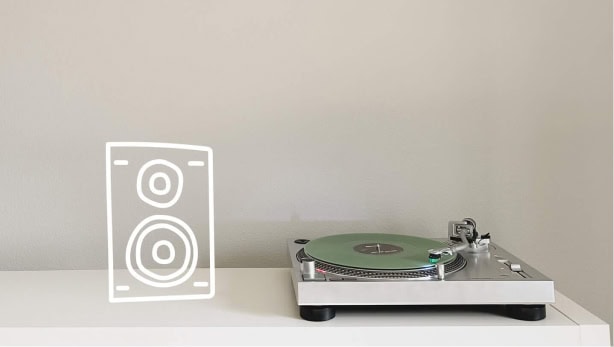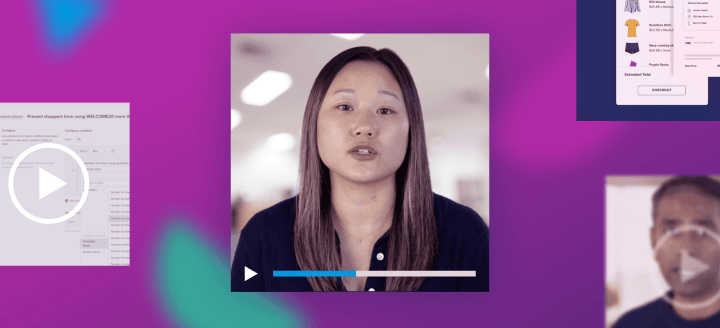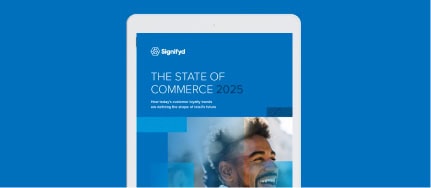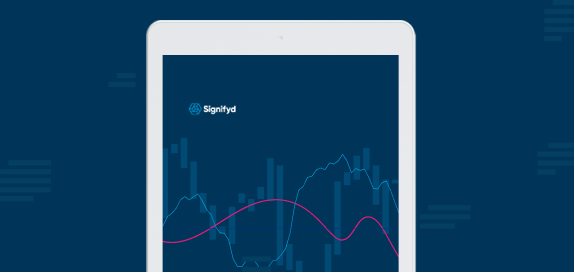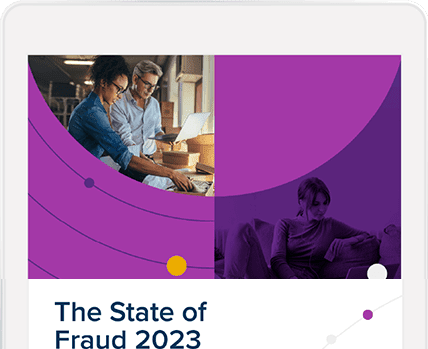We all work with and encounter women making history every day. Each one might not get a chapter in the history texts being read 50 years from now, but today, each is contributing to something greater — a company, a technology, a message, a movement, a community, a circle of friends, a family.
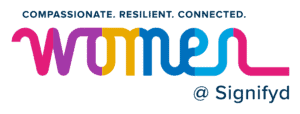
To celebrate Women’s History Month, we endeavored to tap into some of that history-making energy to illuminate in a series of blog posts the expertise, wisdom and inspiration that the women of Signifyd bring to the world. Our third installment focuses on opportunity — including how to expand opportunities for women in tech — so we turned to female leaders across Signifyd’s various teams to hear from the experts.
Amal Ahmed, director of global financial services and EMEA marketing, London, England
For me, it’s very important to try to open doors for women who look like me. STEM has always been seen as a nerdy thing that guys like to do. People like me are a statement that it isn’t — there are opportunities there; you just have to pursue them.

Amal Ahmed
Leaders who look like me
When I’m deciding whether to move to a particular company, part of my decision is looking at their leadership and seeing if there is anyone who looks like me. My previous jobs were in fintech, which is very much a “lad culture.” Working in ecommerce for the past few years, it’s a lot more female-friendly. But there is still a way to go.
“The most challenging aspect of being a mentor is that it’s not you who makes the decision – your role is to share your experience, offer a different perspective and show them the options that they cannot see.”
Rejane Leite, software engineering manager
I have had a mentor for the past 10 years. She’s the global head of marketing for a large company, and she is a woman who looks like me. She had been through some of the same challenges I have been through – being a mother and trying to juggle a full-time career – so it is easy to have those conversations with her.
Help those coming up see opportunities
I also act as a mentor, mostly by going into schools and talking to girls about STEM. Growing up, I didn’t have people come to my school and talk about what I could do in life. No one said, “These are the opportunities that are open to you and this is how you can do it.”
Ping Li, vice president of risk and chargeback operations, San Jose, Calif.
I worked at eBay and PayPal for 10 years, and they had a very strong program for women in technology.

Ping Li
I feel strongly that women need to help and support each other, so I was very active in that organization.
Women in tech organizations are a chance to give and a chance to benefit
I tried to carry it on wherever my next work is. A similar group at Signifyd had a lot of activities before COVID, and it continued in different forms during the pandemic. I encourage women to work with groups like this. You are helping others, but you are also benefiting yourself by taking on leadership roles.
Rejane Leite, software engineering manager, Belfast, Northern Ireland
When I started my career in tech back in 1998, it was completely different than what we have now. It was rare to see women in the industry.

Rejane Leite
Sometimes it was challenging to be the only woman in the room: People would not believe what I was saying, or they would ask for proof of what I was saying. These days, I feel like it’s much better, even though we still have a huge gap. We have a lot of communities for women in tech, some specifically for software engineers.
From being mentored to being a mentor
I was lucky to have people to coach me and family supporting me. I also had a mentor who helped me through different stages of my career. Today, I mentor other people in an informal way. The more senior you are, the more likely you’re going to be mentoring the junior members of your team. The most challenging aspect of being a mentor is that it’s not you who makes the decision – your role is to share your experience, offer a different perspective and show them the options that they cannot see.
Featured illustration by Getty Images
Want to join a team that knows mentoring and being mentored?


